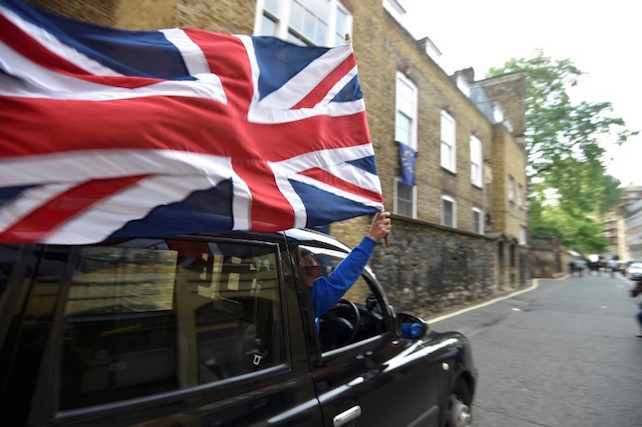Food and beverage, life sciences and financial services firms were most likely to consider relocating whilst aerospace firms were the least likely, the survey by law firm Gowling WLG said.
Nearly all the 533 companies surveyed said they would require some third-party support to deal with the transition as Britain leaves the European Union, potentially risking part of the close transatlantic relationship between the two nations.
Bernardine Adkins, an attorney with Gowling WLG, in a portrait posted on the law firm’s website
“The strong UK-U.S. trade relationship that has been carefully nurtured over the past fifty years is in serious jeopardy,” said Bernardine Adkins, the firm’s Head of EU, Trade and Competition.
“Concerns that Brexit will have an effect on current investment decisions mean this needs addressing now, not later,” she said.
But U.S. fast-food chain McDonald’s said last week that it would move its international tax base to Britain from Luxembourg after coming under increased scrutiny from European Union regulators over its tax arrangements in the small country.
President-elect Donald Trump has also hailed Brexit and said that Britain would not be “back of the queue” for a bilateral trade deal with the United States, opposing comments made by President Obama ahead of the referendum.
A McDonald’s restaurant on Leicester Square in central London is seen on 30 April 2013. Photo: vinylmeister (CC BY-NC 2.0)
British ministers have been meeting top executives from a range of key sectors in recent months as they prepare for formal divorce talks which are due to begin by the end of March.
One of the thorniest issues will be how to restrict freedom of movement in order to bring down immigration, a key concern for many Brexit voters, whilst retaining unfettered access to the single market, fundamental to many businesses.
A third of U.S. business leaders whose firms export to the EU said that two years of regulatory uncertainty as divorce talks unfold could harm them and just over half said they might bypass Britain to do business directly with the European Union.
Gowling WLG surveyed 533 executives from U.S. companies with a turnover of 10 million pounds or more between Sept. 21 and Oct. 18.
(Reporting by Costas Pitas; editing by Stephen Addison)


